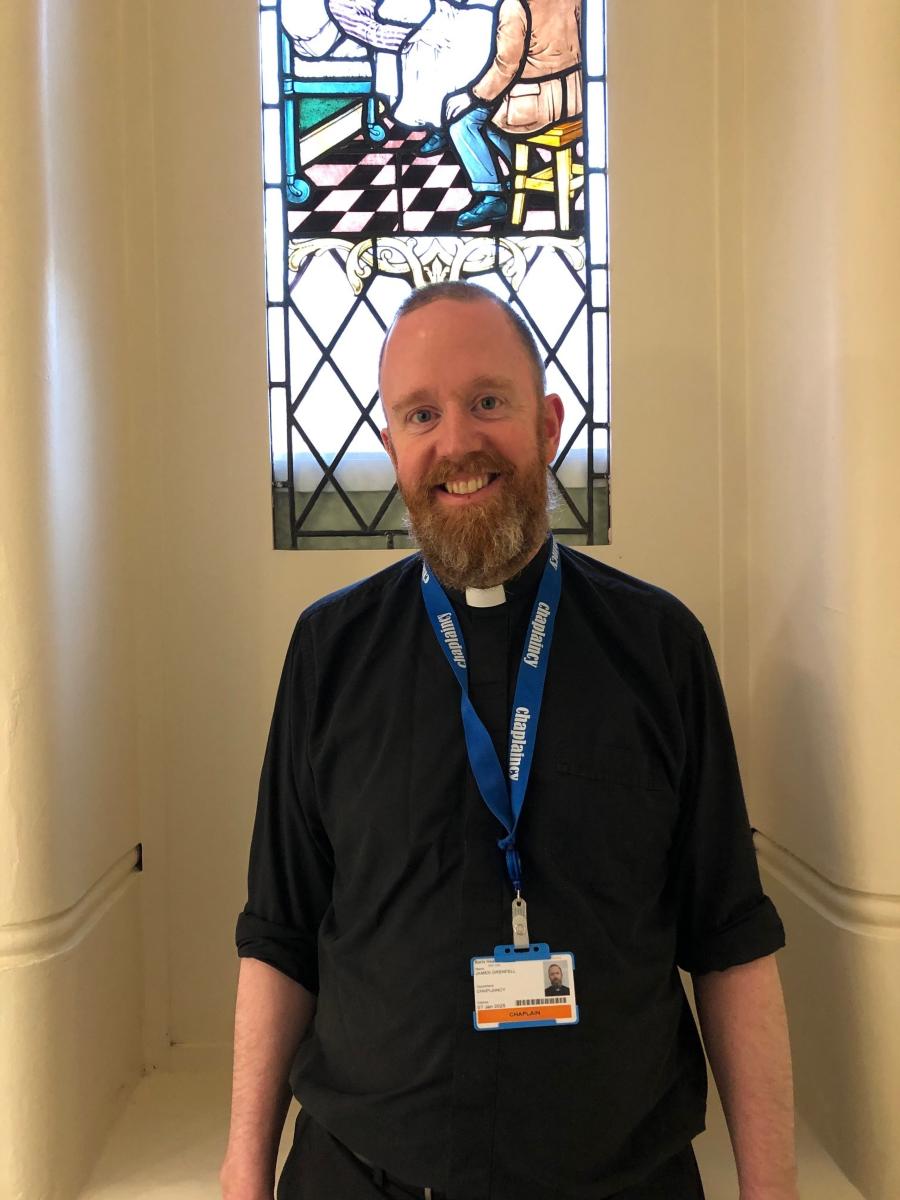Introducing James Grenfell, our new Chaplain at Whipps Cross

We spoke to our new Chaplain, James Grenfell about why he's excited to be joining Whipps Cross, as well as the things he enjoys most about being a Chaplain and the time he was stuck on the East side of the Berlin Wall without a visa!
If you'd like to speak to James, feel free to drop by the Chaplaincy office at Juncton 3. Read his Q&A below!
Where have you worked previously and what experience do you bring to the role?
After doing academic research, I worked as parish priest in a wide variety of contexts in Liverpool and Sheffield. As well as offering pastoral care to people in my parishes, I often became involved in issues of public health. For example, I helped to lead a community campaign against a chipboard factory polluting our local area and worked with the Department of Public Health and the local MP to highlight people’s concerns and apply pressure to those responsible for monitoring and regulating the factory. I have also worked for an international Christian charity involved in health and community development projects where I have learned the importance of local people deciding upon their health priorities and the assets their community already has to help them to chart the complex journey out of poverty. Most recently I’ve been involved in education, leading a programme preparing students to work as ordained and lay ministers in the Church of England.
I have a wide range of volunteering experience. I volunteered at Spitalfields Crypt years ago when it was a residential drug and alcohol rehabilitation centre. I was also a volunteer at the Samaritans for ten years and I set up listening services in the local prison and in an immigration detention centre. I know the importance of deeply listening and attending to people at a vulnerable periods in their lives.
In what way does your role help patients and staff?
My role, as part of a multi-faith chaplaincy team, is to provide pastoral care and spiritual support for both patients and staff whether or not people identify as belonging to a particular religion. Experiences of illness, suffering, death and bereavement can raise acute questions of meaning and purpose for all of us. Chaplains are there to listen carefully to what is most important to people and to help them to make sense of their experience. Chaplains are also there to help people who have a religious faith and who find that their faith gives them strength in challenging and distressing times.
What attracted you to this area of work?
I know from my work as a parish priest what a privilege it is to be able to accompany people at critical times in their lives. I get a deep sense of fulfilment from being with people at these times and I also enjoy (where appropriate) the opportunity to help people to make connections between their faith and their experiences of life.
What is your proudest career achievement so far?
That’s not an easy question to answer : I don’t readily think about my work and vocation as a career. I guess that I’m most proud of some of the creative work that I’ve been involved in with small church congregations in inner-city areas or outer housing estates. Being able to spot and celebrate the small, but significant changes that people have been able to make for themselves and their communities is very special.
What’s the most memorable feedback you’ve had from a patient/member of staff?
When a parish priest, I will never forget the gratitude of a young couple who asked me to conduct a funeral for their baby who had died after nine months spent in intensive care in the hospital. We carefully planned the funeral together and although it was an immensely sad occasion, they found that it also offered them healing and a sense of hope. Shortly after the funeral they gave up their jobs and set off travelling together for a year to reflect on all they had been through. They contacted me again after they returned and it was clear how much our earlier conversations had meant to them.
What do you enjoy most about your job?
I most enjoy the opportunity to interact with a very wide variety of people, of all faiths and none, and to have rich, stimulating conversations. I also enjoy working as part of a team, both with some fantastic volunteers in the chaplaincy team at Whipps Cross as well as with colleagues from across the Trust.
What are you looking forward to most about working at Whipps Cross?
I’m looking forward to learning more both about Whipps Cross’s unique identity as a hospital and also about the community it serves. I’m looking forward to the excitement and energy of planning for the new hospital and all the improvements this will bring. I have very poor sense of spatial awareness and so I’m hoping that the new hospital will have a nice long corridor running through it to help me navigate my way around.
What do you consider the biggest challenge in your area of work?
I think that one of the biggest challenges is to continue to offer high quality, unhurried spiritual and religious care in an institution which, like many parts of the NHS, is under huge pressure. A related challenge is to learn and to develop further nuanced ways in which to measure the impact of our work.
How would you spend an ideal day off?
An ideal day off would be getting up late before going for a long walk with my family and our two dogs. Lunch in a pub, a visit to the National Gallery in the afternoon, and then a chance to play my classical guitar in a guitar ensemble in the evening.
Tell us something surprising about yourself.
I once got stuck on the East side of the Berlin Wall without a visa.
